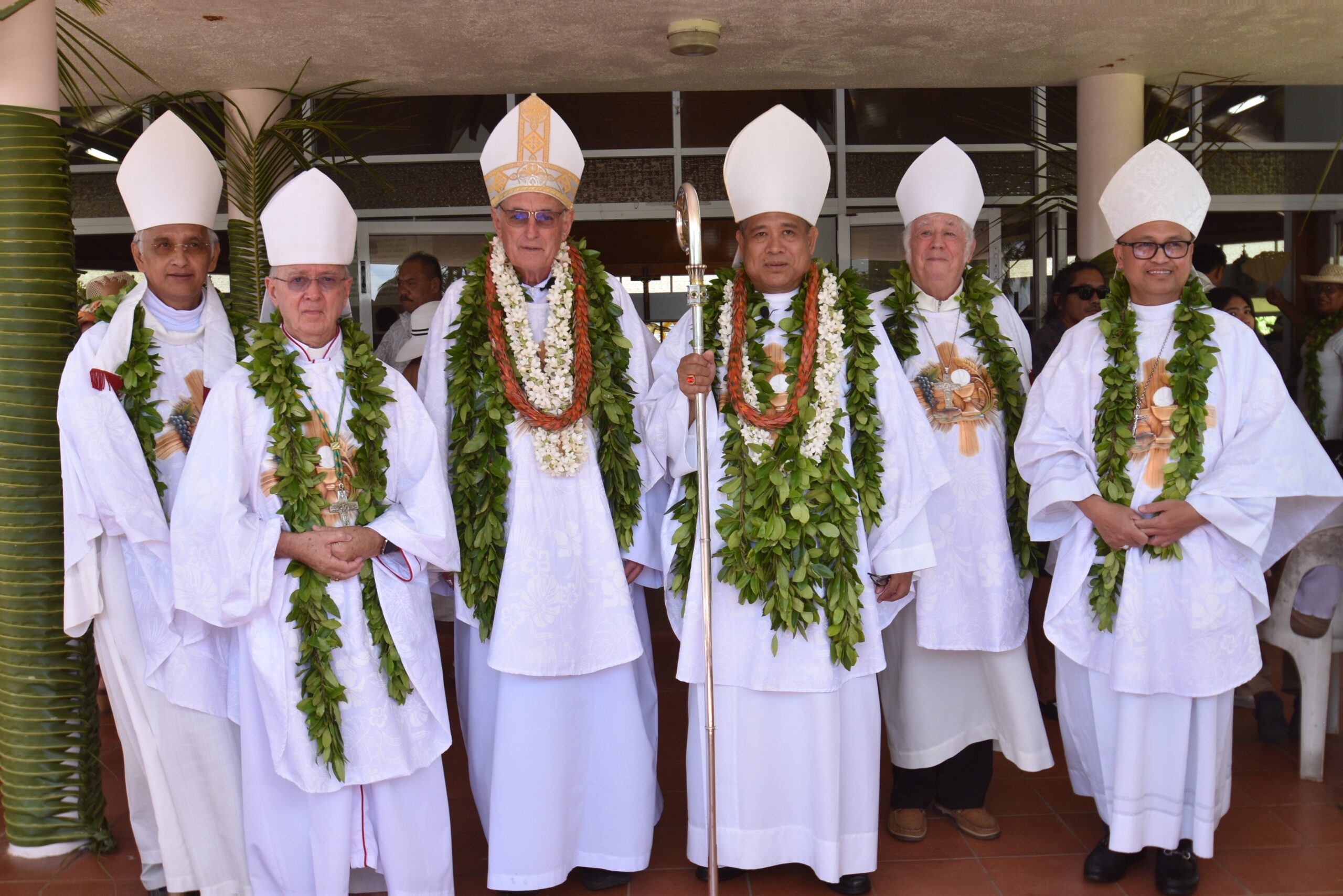Ruth Mave: Challenging our cultural ideas about disabilities
Monday 13 November 2023 | Written by Ruta Tangiiau Mave | Published in Editorials, Opinion

Down Syndrome Association president Tai Nicholas receives a donation from Nukutere College after the school held a mufti day for World Down Syndrome Day in 2022. Caleb Fotheringham/22032111
Why is it necessary to teach our Christians to love unconditionally and see everyone as equals in the eyes of God? writes Ruta Mave.
I was nearly 40-years-old when I gave birth to my first born.
As an older mother I was asked to test to determine if my baby had any ‘disabilities’, namely Down Syndrome.
I refused, for two reasons. If it was? I had an option to abort which I never could do, and second was so what?
I grew up around a Down Syndrome boy.
He was raised as a normal kid so that is how I saw him. I understood he had differences, many of those characteristics were positive rather than negative. I also stated that Adolf Hitler was born, ‘normal’ and look how he turned out.
I have always worked with people with disabilities. During my physical education degree at Otago and later working with the Blind Foundation, disabled skiing IHC, teaching and coaching various humans in a sporting environment for healthy lifestyles.
I continue to this day actively working to create an athletics program for Inclusive Education students in schools and adult pathways for sport via the Disability Council.
I believe it is an area that needs more attention to create an environment where they too can challenge themselves and achieve self-awareness, esteem and pride by competing to be better and increase their personal goals not just participating.
I believe the values inherent in sport of pride, accomplishment, strength endurance, goal setting, and positive self-belief are essential and should be made available to all, especially those with dis-abilities.
Therefore, it was a shock to me to read a campaign teaching that having a disability is not a sin, or being a parent of a disabled child does not mean they are being punished for sinning.
Why is it necessary to teach our Christians to love unconditionally and see everyone as equals in the eyes of God?
The Bible shows Jesus was sensitive and caring towards persons with disabilities they are the main focus of his healing ministry Mark 8:22-26; 10:46-52 plus the parable of the great banquet Luke 14 defines there is a place for persons with disabilities in the Kingdom of God. So where did this idea of sin come from?
Back to the great fall of Adam and Eve bringing the notion of sin into our world. If we define normal as perfection, then anything not in line with that model is – sin?
Like a cyclone is a natural disaster or the wrath of God, so too the disability of a child is seen as a natural evil from God? This comes from the notion ‘all will enter the kingdom of Heaven and will be free from tears death sorrow or pain’ Rev 2`:4 so anything that causes God’s creation to suffer therefore is evil and not part of God’s design or goal for creation?
If that was the truth, then most of the atrocities committed in our world would be from disabled people.
The darkest actions of humanity are directly caused and carried out by the most able, and intelligent of our species.
Just look at the Gaza strip right now.
Medically, the positions of disability are understood as a medical problem requiring a medical solution.
Framing the disability in the negative and the cure in the positive. No wonder many modern Christians have understood disability to be linked to sin and the cure as a divine gift.
Many people with disabilities have experienced Christians praying that they receive a miraculous cure. Others are told that their faith might make them well. Still others are told that God allowed them to become disabled to make them more virtuous through their suffering.
This implies that God rewards faithful disabled Christians either from cure or the strengthening of their character. This thinking positions God as a transactional deity who cures individuals in exchange for faithfulness. This is a God of business, not the Bible God who lives in solidarity with the sick and suffering.
The idea that all disabilities will disappear in the Kingdom of Heaven is not really known. We do know after his death on the cross, Christ’s own bodily wounds were still present John 20:27
This challenges our cultural ideas about disabilities. Jesus says in Luke 14:1-24 The crippled, the lame and the blind are invited to feast with the King. So rather than fixing bodies Jesus proclaims to come as they are.
Churches need to disentangle disability from sin. A necessary first step for churches who wish to fully include and honour the lives of persons with disabilities among them and resemble the communities Jesus preached about, will be to examine who it marginalizes and how best to include those persons into the life of the church with true equality. Only by first modeling justice and inclusion in its sacramental and liturgical life can the church begin to embody the Kingdom of God.









































